Blessed Unrest
– Speakers –
Conference Home Speakers Program Sponsors and Partners
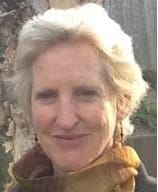
Rabbi Ellen Bernstein founded Shomrei Adamah, Keepers of the Earth, the first U.S. Jewish environmental organization in 1988. She graduated one of the first environmental studies programs at U.C. Berkeley; co-directed Turtle River, a wilderness river company; helped develop the field of religion and ecology; and authored numerous articles and books on Judaism, Bible and ecology including The Promise of the Land: A Passover haggadah (2020, Behrman House) and The Splendor of Creation. Todayshe continues to write,teach and consult on the ecological dimensions of Judaism and the Hebrew Bible.
She says, "As a young person, I despaired of how the adult world conceived of progress: flattening landscapes for housing developments, polluting the atmosphere and ruining nature. It seemed to me that consumption was our national pastime and that most people were oblivious to our sentient world. Nature was my temple and nature literature was my sacred text. Yearning to preserve nature, I studied biology, led wilderness river trips, and taught life sciences. I began searching for a spiritual path that could integrate my ecological passion, and re-discovered Judaism. For more information visit www.ellenbernstein.org
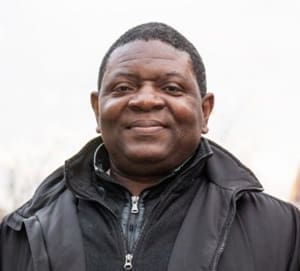
Alfred Brownell is an environmental and human rights lawyer and executive director of Green Advocates (GA), a Liberian NGO that he founded in order to represent communities seeking to protect their environmental and human rights. Brownell also established a network to connect community-based organizations throughout Liberia—the Alliance for Rural Democracy (ARD)—to collaborate on environmental justice work. He grew up in Robertsport, Liberia, and studied science, agriculture, and law at university.
Under threat of violence, Brownell stopped the clear-cutting of Liberia’s tropical forests by palm oil plantation developers. His campaign successfully protected 513,500 acres of primary forest that constitute one of the world’s most important biodiversity hotspots, enabling indigenous communities to continue their stewardship of the forest. That land sequesters carbon, shelters endangered species—including elephants, chimpanzees, pygmy hippopotamuses, and tree pangolins—and is part of the Upper Guinean biodiversity hotspot. Victory has come at a price, as Brownell and his family were forced to flee Liberia. Brownell is currently a distinguished scholar and research associate professor in the School of Law at Northeastern University in Boston, and has recently joined the faculty at Yale Law School. He is the 2019 winner of the Goldman Environmental Prize
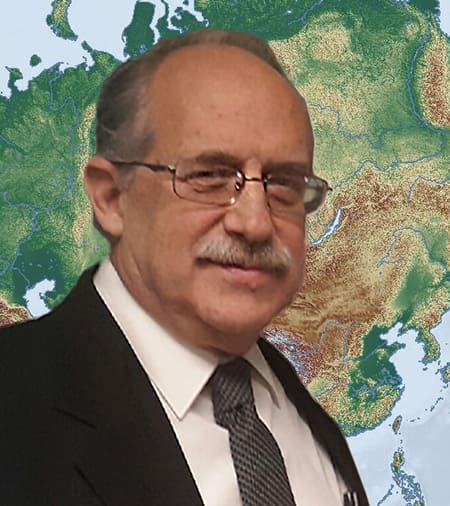
Roland Bunch is one of the most well-respected leaders in regenerative land management, both in terms of food security and for addressing ecological degradation and climate change. He has worked as a consultant in sustainable agricultural development for over 45 NGOs and governments in 50 nations, including Cornell University, the Ford Foundation, Oxfam, Save the Children, CARE, and the governments of Guatemala, Honduras, Swaziland, Laos and Vietnam. He is the author of four books. The second of these, Two Ears of Corn, A Guide to People-Centered Agricultural Improvement, has been published in ten languages and is one of the all-time best-sellers on the design of agricultural development programs in developing nations.
In 1983, Mr. Bunch began investigating the use of plants that regenerate the soil, called “green manure/cover crops.” His most recent book, Restoring the Soil: How to Use Green Manure/Cover Crops to Fertilize the Soil and Overcome Droughts, synthesizes his extensive field-based research in this area gathered from smallholder farmers around the world. In Africa, presently, more than 40 million people are in serious need of food aid. Surprisingly, although global warming has made rainfall less predictable, lack of rain is not the primary cause of these droughts. Rather, they are being caused primarily by the problem of the increased population pressure on the land, which has forced African smallholder farmers to reduce the amount of time they set aside land for fallowing (letting the forest grow). The land has therefore gradually lost its organic matter, which in turn has reduced the rainwater infiltration rate from 60% to less than 20%. The only feasible hope for reversing this fateful process is the use of green manure/cover crops.
Mr. Bunch states that, “On at least 75% of the developing world's wastelands, we can, within two to three years, have farmers growing crops at double the national average; within four to six years, they can be producing three times their nations’ averages. And they can do all this while reducing their labor and making a much higher net profit.” Mr. Bunch, along with a number of other development organizations, have already achieved such results in over a dozen nations of Africa and Latin America. What’s more, as a free by-product of this whole process, these farmers are sequestering carbon in the soil, long term, at a rate of over 4t/ha/year. At this level of carbon sequestration, the world’s farmers and ranchers alone could sequester over half the carbon needed to meet the Paris Accord targets by the year 2100.
Mr. Bunch has been honored with nominations for the Global 500 Award, the End the Hunger Prize of the President of the United States, and the World Food Prize.
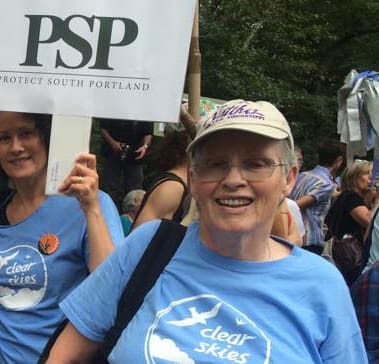
When Rachel Burger, a South Portland, Maine resident and new grandmother, heard about Exxon Mobil's plans - to use a World-War-II-era pipeline to pump millions of gallons of dirty tar sands oil through Vermont, New Hampshire and Maine, crossing over rivers, the Sebago Lake watershed and right out into Casco Bay, risking nearly all of Southern Maine’s drinking water - she knew someone had to step in to stop it. So she began meeting with some of her neighbors to see what they could do. Rachel says: "The environmental groups in our area were trying to stop the Portland Pipeline company from exporting tar sands from South Portland harbor and erecting the two seventy-foot smokestacks needed. The organizations needed a group of South Portland citizens to pull this off. I called together a group of activists who started meeting weekly in our home, lured by warm soup and a sense of purpose. After months of hard work by many citizens, the Clear Skies Ordinance which protects us from exporting any crude oil from South Portland was passed by the city council. Not surprisingly the city was sued by the Pipeline Company and our case is now in the federal court in Boston."
"Since then our group, Protect South Portland, has gotten the city to pass No Pesticide and Synthetic fertilizer ordinances. We are presently working to stop toxic emissions from being spewed out of the 110 fuel tanks dangerously close to local residents. I am personally very concerned about local and international soil health, and the lack of understanding that this is the only way to sequester carbon and hopefully survive on planet Earth."
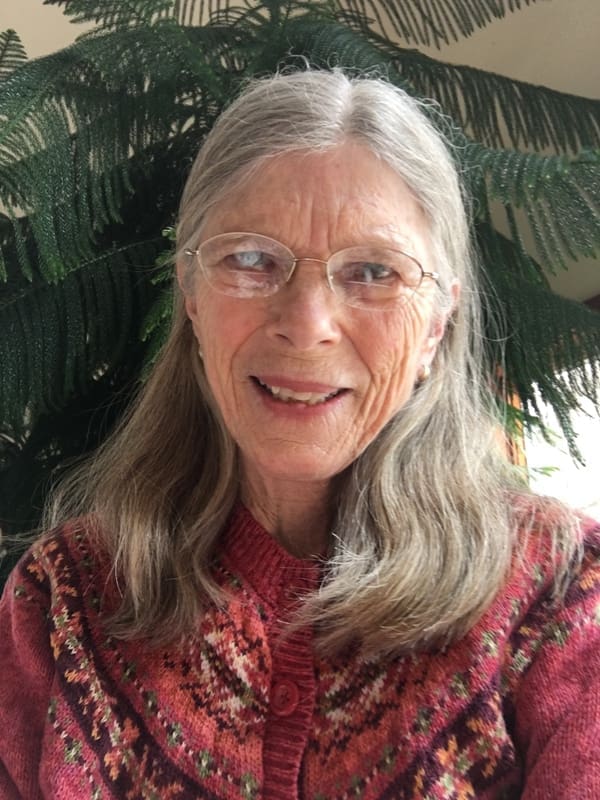
Iona Conner has been an environmental activist for more than five decades. The birth of her first child 53 years ago catapulted her into the realization that her daily choices had a direct bearing on the health of her son and the well-being of the Earth. She has been an active participant in the movement ever since. As a nurse, Iona watched people dying prematurely of cancer. As an air pollution inspector in the middle of New Jersey, she was inside factories writing violations and bringing corporations to court. As an employee of the New Jersey Department of Environmental Protection’s Division of Hazardous Waste Management, Iona was a one-woman road show carting slides and posters of hazardous waste sites and a car full of non-toxic products to educate her audiences about the ways in which traditional consumer activities help create toxic dump sites.
As Co-Director of the Grassroots Coalition, Iona traveled with her (now deceased) husband John throughout the Northeast and Midwest for 15 years organizing meetings and presenting programs. They started a worker-owned cooperative with a handful of women who designed and made clothes using organic cotton grown in the U.S. and selling those garments (plus items from other socially responsible companies) in churches and colleges. Then they switched their emphasis to climate change. Their shared vision was to work with people to create a more just and loving world. Currently Iona is devoting her spare time and energy to her climate emergency newspaper, Groundswell News Journal. Its mission is to be a beautiful, inspiring, uplifting newspaper which educates and enlightens people about the climate emergency through scientific articles and stories by and about activists who are working to protect life on Earth and preserve natural resources.
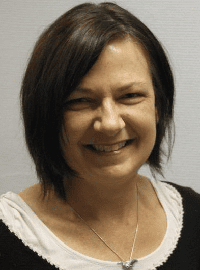
Cynthia Contie (BA, Psychology, MEd - Environment) started her Blessed Unrest journey while working in a high pressure corporate management position of 12 years in Minneapolis Minnesota. Although her life was materially comfortable, she found herself deeply disturbed by our society's fractured relationship with Nature, and particularly with the beings of the animal kingdom. Seeking out cruelty-free foods and products led Cynthia to discover what was then a new movement called "sustainable development." Early volunteer work in sustainability in 2002 led Cynthia to attend a study tour in the country of Sweden, where she and other tour participants visited with and learned from the "fire souls" in Sweden who were at the heart of a nationwide movement there called the "ecomunicipality movement." This is where Cynthia and Steve Weinberg first met as co-participants to the 2002 tour, and both of their lives were profoundly impacted by the tour. Cynthia, for example, decided to resign from her corporate position and dedicate her work and life to promoting awareness of and supporting development of the eco-municipality movement. One of her first projects was in collaboration with Ms. Sarah James and Mr. Torbjorn Lahti and Mr. Weinberg in 2004 with the release of James and Lahti's book, The Natural Step for Communities: How Cities and Towns Can Change to Sustainable Practices. Cynthia coordinated their book release tour, including visits to several communities in the eastern and midwestern US. Steve Weinberg hosted in the Philadelphia region. This release of the book and the accompanying book tour planted seeds that ultimately led to development of a network of ecomunicipalities in the US and ongoing collaboration with Lahti and Sustainable Sweden.
Cynthia's work continues now as the primary contact for ongoing Sustainable Sweden Tours, which are now being re-imagined to include a virtual tour option. Steve and Cynthia's presentation today will tell a bit of the story of this quiet but vibrant Odyssey that is the world-wide ecomunicipality movement.
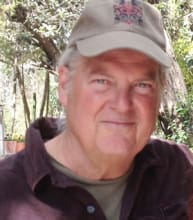
Ronnie Cummins is co-founder and International Director of the Organic Consumers Association (OCA) and its international affiliates Via Organica (Mexico) and Regeneration International. OCA is a non-profit, U.S. based network of two million consumers, dedicated to safeguarding organic standards and promoting a healthy, just, and regenerative system of food, farming, and land use. OCA’s primary strategy is to work on national and global campaigns promoting health, justice, and climate stability that integrate public education, marketplace pressure, media work, litigation, and grassroots lobbying.
Ronnie has been active as a writer and activist since the 1960s, with extensive experience in public education, grassroots mobilization, and marketplace pressure campaigns. Over the past three decades he has served as director of US and international campaigns dealing with agriculture issues including organic standards, food safety, genetic engineering, factory farming, and global warming. In 2009 he co-founded Via Organica, a network of organic consumers and farmers based in Mexico City and San Miguel de Allende, Guanajuato. In 2015 he co-founded Regeneration International, a global network dedicated to mitigating and reversing climate change through regenerative food, farming and land use. He is a frequent lecturer, both in the US and abroad, as well as a regular contributor to online publications such as Organic Bytes, Common Dreams, Mercola.com, Truthout, Alternet, Counterpunch, and Eco-Watch. He is the author of a series of children’s books called Children of the World, as well as the book Genetically Engineered Food: A Self-Defense Guide for Consumers (Marlowe & Company 2004). His new book, Grassroots Rising: A Call to Action on Climate, Farming, Food, and a Green New Deal will be published by Chelsea Green in February 2020. Cummins lives with his wife and 21-year-old son in Minnesota and in San Miguel de Allende, Mexico.
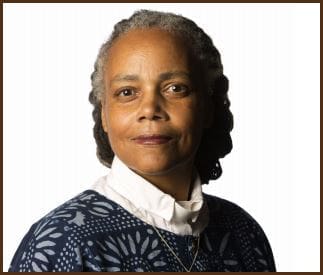
Rev. Dele is a grandmother,author and pastor who opens the environmental narrative to include the voice of Mother Nature so we create JOY with our Impact. Trained as a Climate Reality Leader and spiritual director, she supports spiritual leaders and Earthkeepers who are struggling with burnout and rage. As grandmother, theologian and permaculture professor Dele teaches that justice begins with the inner balance experienced in Nature and then flows throughout human relationships in social, political and economic systems.
Dele is developing two national initiatives to calm our social and weather chaos. The Spirit of Resilience radio show, www.spiritofresilience.com, will raise a platform for women environmental leaders all over the globe as we clock our rise instead of our demise. Segments also highlight Indigenous culture and on the ground collaborators. We extend open arms to tech savvy workers who wish to assist in the launch.The emerging Soil & Souls cooperative, www.revdele.com/soil-and-souls, is training young adult leaders who strengthen resilience in communities that need it most. Resilience hubs are forming in North Carolina and the native plants nursery is launching in New York’s Hudson Valley. Faith groups and young adults are invited to join or create a hub that restores financial well being as they stabilize food sovereignty and water security in their own communities. Dele’s newest book Breath of Life, https://amzn.to/2LEdsLf, is a 5 week Bible study that helps us grow closer to God and grow a secure community by loving creation. People of all faiths have found inspiration in the way Dele blends sacred text, science, spiritual and community development.
Ordained in the United Church of Christ (UCC), Dele also serves as an Advisory Council member for the Hudson Valley Community Wealth Fund and the National Congress of Black American Indians; board member of Permaculture Association of the Northeast, and the UCC Climate Council. She earned a B.A. from University of California-Riverside and M.Div. from Howard University School of Divinity. She serves in the Southern Conference of the United Church of Christ and maintains Baptist and Indigenous affiliations.
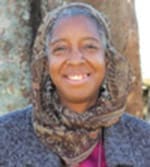
Anna Gilbert-Muhammad is the Food Access Coordinator of NOFA/Mass and lives in Springfield. She was born in New York City but, being the child of a Marine Corps father, lived in various places in California as well as Baltimore. While in California, although she was raised as a Roman Catholic, Anna became interested in the Nation of Islam and ultimately converted. She says, “I enjoyed the whole idea that prayer is a conversation between you and God. There are no intermediaries. You know the Catholics have saints, priests, a whole bunch of people between you and God. I went along with it but it was very confusing for me. In Islam there is a direct communication between you and God. You don’t need anybody else, which I appreciated. . . . I also appreciated the community work,” she continues, “that the Nation of Islam does, in the restoration of people of color. It is some of the hardest work, but it gives me a sense of purpose.”
Anna began to garden and discovered NOFA. Anna is responsible for the alliances of NOFA/Mass with groups working on food access issues. This includes a large number of indigenous urban farming organizations like GtC: community gardens and youth training programs as well as food policy and food sovereignty efforts. “I’ve been working with the Urban Farm Institute in Mattapan,” she explains, “teaching people how to raise food. It’s in the inner city of Boston. They’re trying to build healthy soil so that they can grow more nutritious food. NOFA is helping with our soil technical assistance program. We’ll work with you, train you up, and when we go away you can continue on your way. That is the best kind of relationship groups like NOFA can have. “ (This bio adapted from The Natural Farmer, published by NOFA Mass.)
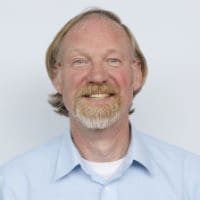
Christopher Haines is a seasoned architect licensed in both MA and NY who applies expertise in regenerative architectural design, healthy materials, preservation, renovation and specification writing to small commercial and urban projects. He has spoken for years at US and international forums as well as formally teaching sustainability and environmental management to undergraduate and graduate students. Christopher has been deeply involved in the Living Building Challenge and is certified as a Living Building Challenge and Passive House consultant.

Claire Hedberg is a 15-year-old climate justice activist with Zero Hour and Polluters Out. She was born in Guatemala City, Guatemala, but resides in Richmond, Virginia. Through her work, she hopes to spread awareness about the current crisis and empower communities of color and indigenous peoples.
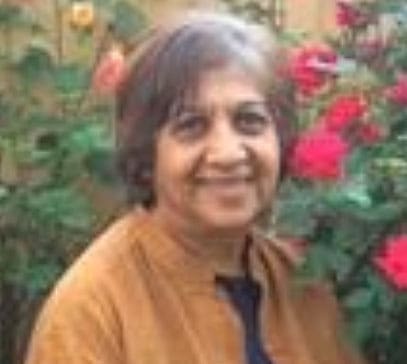
Hayat Imam is an American-Muslim of Bangladeshi origin. She is a feminist-activist committed to building global social justice movements. Her efforts have been directed towards nuclear disarmament, renewable energy, and economic opportunities for women. Former Executive Director of the Boston Women’s Fund, she has written and organized extensively on violence against women, and is co-author of Watermelons Not War – Parenting in the Nuclear Age. As former Chair of the Board of Grassroots International, she led efforts to organize for human rights to land, water and food. Hayat was an activist with Clamshell Alliance, and part of the Occupation of the Seabrook Nuclear Power Plant site in 1978. She is an active member of Mass Peace Action and Dorchester People for Peace and presently offers a four part Course called UNDERSTANDING ISLAM: A Muslim Woman’s Perspective on the Essence of Islam, the Diversity of the Muslim World, and its Relationship with the West.
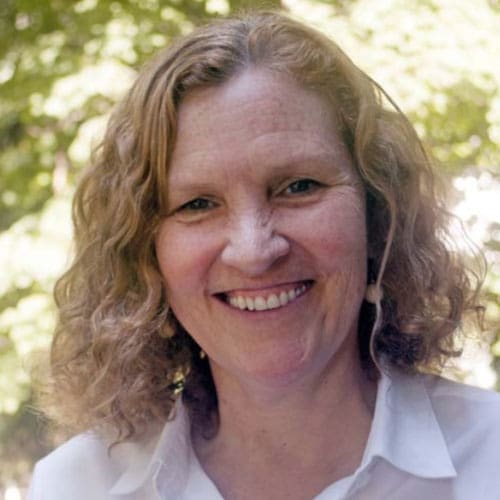
Susan Jennings became Executive Director of The Arthur Morgan Institute for Community Solutions (AMICS) in 2014. Since that time, she has partnered with the AMICS board to implement a new strategic plan oriented toward the support of resilient communities. She also led AMICS in the 2017 purchase of Agraria, a 128-acre farm on the outskirts of Yellow Springs which is being developed into a Center for Regenerative Practice. Susan serves on The Village of Yellow Springs’ Economic Sustainability Commission, the Board of the Greater Dayton Conservation Fund, and on the national Council for Agricultural Research, Extension, and Teaching on behalf of Central State University. She also facilitates a Community Climate Resilience class for the University of Dayton’s lifelong learning institute.
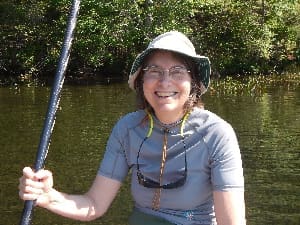
Jan Lambert is an environmental writer and editor of The Valley Green Journal www.valleygreenjournal.com , which addresses connections of agriculture, nature and communities. She has been a working partner with internationally recognized hydrological scientist Michal Kravčík, in promoting awareness of the central role of water cycles for environmental sustainability, via her journal and her book, Water, Land and Climate–The Critical Connection, published in October 2015. Included in the book is “A Global Plan for the Restoration of Natural Water Cycles and Climate,” co-authored with Kravčík, which was presented at the COP21 Climate Summit in Paris. She is a cofounder of Voices of Water for Climate, www.vow4climate.org , an organization promoting the infiltration of rainwater into land to alleviate floods, droughts, pollution, and climate change manifested as severe storms and heat waves. Jan lives on a secluded homestead in New Hampshire and has extensive hands-on experience with landscape restoration and wildlife monitoring in her region, as well as working with diverse groups including youth and the faith community.
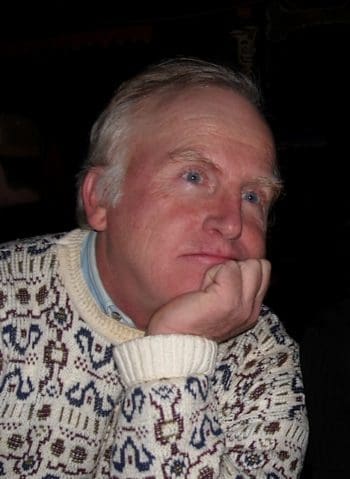
Jim Laurie is a restoration biologist and co-founder of Biodiversity for a Livable Climate. He was manager of the Vermont “Living Machine” which was designed by ecological visionary John Todd. This biodiverse system treated 80,000 gallons of sewage per day. For 20 years he was a biologist and technical trainer in the chemical industry in Houston, Texas, where his work with ecological systems cleaned toxic wastewater. Jim has studied Holistic Management of grasslands with Allan Savory and the Savory Institute in Texas, Colorado and Montana. In Maryland, he built a lab to study fungi and grow mushrooms learning from the work of Paul Stamets (fungi.com). He also worked with the International Wolf Center in Minnesota learning about predators and the biology of the north woods. Jim loves sharing about these diverse experiences with curious folks of all ages. He really enjoys teaching science and ecology to Homeschool students in the Boston area.
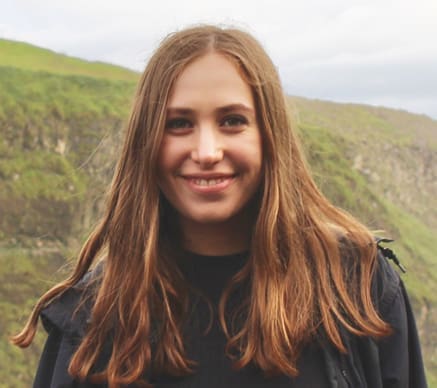
Arielle Martinez Cohen is a singer, songwriter, producer, and activist from Los Angeles, CA. She has been working in the music business since she was nine years old, singing back-up vocals for artists such as Macklemore, Imagine Dragons, Frank Ocean, and Foster The People, and appearing on the Jimmy Kimmel Show and Conan O’Brien Show, among others. At 15, she was selected to attend Grammy Camp for Songwriting. In January 2018, her song, “Two Minutes to Midnight” was used by The Bulletin of the Atomic Scientists in their announcement of the Doomsday Clock, and in March 2018, she sang her song “Why” at the March For Our Lives rally in downtown Los Angeles. This led to interviews on Buzzfeed News and ABC 7 News, which in turn, led to her being selected by Instagram for their #captureconfidence campaign, featuring teen girls who are using their talents to affect positive change. The campaign was launched on Good Morning America with the release of the book Confidence Code for Girls. Arielle also sang at the National Die In Day rally in Los Angeles and at the Zero Hour Youth Climate March in Washington DC. She is currently the Music Director for Zero Hour, and a student at Brandeis University. Arielle sang at our Listening to the Voices of Nature conference in 2018 .
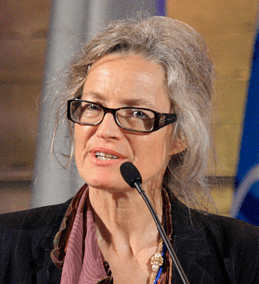
Janot Mendler de Suarez is aTechnical Advisor & Caribbean focal point for the Red Cross Red Crescent Climate Centre, a consultant to the World Bank for the Caribbean CREWS (Climate Risk Early Warning Services), and a Visiting Research Fellow at Boston University Pardee Center for the Study of the Longer-Range Future. She is an innovator in the use of serious games and creative arts for effective learning and dialogue, and has designed and facilitated game-enabled processes to support the World Bank Green Economy launch in SE Asia. A lead author of Global Oceans Forum climate policy briefs, she is a researcher the Pardee Center and spent over a decade developing the Global Environment Facility’s International Waters knowledge-sharing program involving 182 countries.
Janot piloted an internet-mediated MSc program for developing country students as Senior Lecturer in Geography at Royal Holloway University of London, and serves as a reviewer for Elsevier, Springer and Nature journals, and as Nature Publishing Group Editorial Board member for Scientific Reports. She has consulted with the World Food Programme, Rockefeller Foundation, Oxfam-America, Singapore Civil Service College and National University of Singapore among others. She spearheads public conversations on race and sustainability in greater Boston.
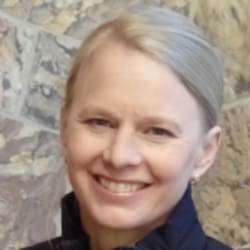
Elizabeth Monson, PhD, is the Spiritual Co-Director of Natural Dharma Fellowship and the Managing Teacher at Wonderwell Mountain Refuge, a Buddhist meditation retreat center in Springfield, NH. Elizabeth holds a Doctorate in Religious Studies with a focus in Tibetan Buddhism and Ethics from Harvard University. She has been studying, practicing, and teaching Buddhism for over thirty years and has been ordained as Lama in the Kagyu tradition of Tibetan Buddhism. Elizabeth’s teachings focus on accessing the energy and open awareness found in the natural world for awakening in everyday life. Elizabeth has just completed a biography of Drukpa Kunley, the mad yogi of Bhutan, for Shambhala Publications (to be published in April of 2021). Elizabeth also regularly leads pilgrimages to Bhutan and has lectured at the Harvard Divinity School.
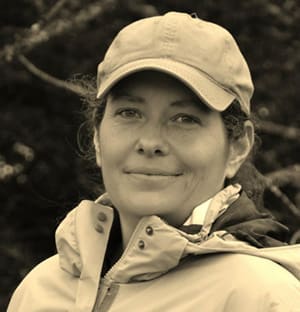
Holly M. Paar is the Advancement Director for Dogwood Alliance, a Southern US based nonprofit mobilizing diverse voices to protect southern forests and communities from destructive industrial logging. Her work involves coordinating with frontline communities and partners at the intersection of climate, forests and justice, including Dogwood’s participation in the Justice First Tour, launched by Reverend Leo Woodberry in 2018. She and her team at Dogwood have also created Stories Happen in Forests, ongoing opportunities for unique, diverse voices to share stories with the general public about their physical, emotional and spiritual ties to the forest.
An LGBTQ and HIV/AIDS activist since age 13, Holly has integrated a life of service and spiritual reflection into careers that have spanned health, social justice, youth empowerment, outdoor leadership and now, forest protection. She is an avid painter, musician and composer and runs an occasional series of creativity, leadership and storytelling workshops.
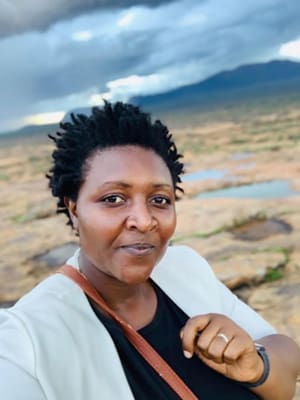
Precious Phiri is a smallholder farmer, regenerative agriculture practitioner and trainer based in Zimbabwe. She is also an accredited Field Professional in Holistic Management education for communities with the Savory Institute. She works with rural communities through her organization EarthWisdom Consulting and other partners both in southern and east Africa to regenerate degraded communal lands. Precious is involved with Regeneration International as part of their steering committee and as their African Coordinator. Her role is to connect with other work going on in the African region and to continue plugging this work into the global movement.
At the conference she will share with us stories of hope from frontline communities dealing with weather insecurities and climate emergency. She will also emphasize the value of local tribal communities in regeneration and how can the world support these small efforts to have a meaningful impact on people’s lives.
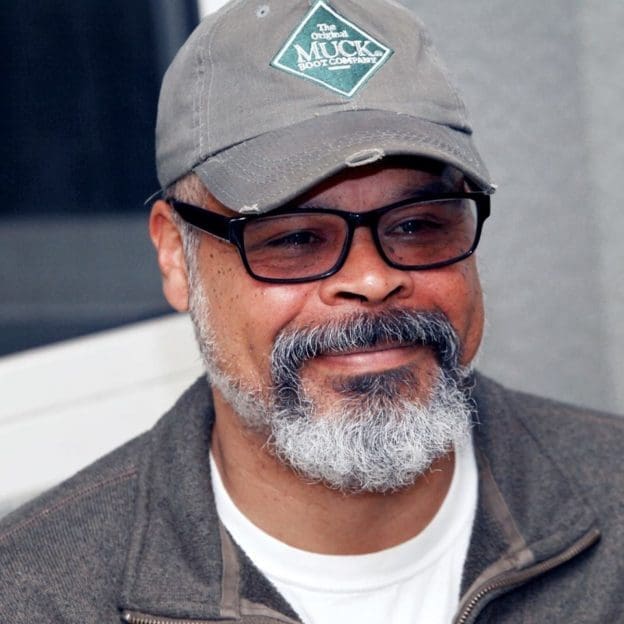
Sven Pihl, founder of CT Edible Ecosystems, LLC is a Regenerative Land Planner/Designer and Permaculture educator based in Connecticut. Sven designs multifunctional Edible Landscapes and Forest Gardens for homes, commercial properties, campuses and public spaces. He’s passionate about regenerative landscape design to create productive agro-ecosystems.
Sven’s beginnings were with the financial crash of 2008 where he Urban Homesteaded for 5 years. Sven is a Certified Permaculture Designer and teacher, a member of the USDA’s Northeast/Mid-Atlantic Agroforestry Steering Committee, a member of the Association for Temperate Agroforestry and both a Master Composter and a NOFA Accredited Organic Land Care Professional. His education ranges from landscape design and horticulture courses to Agroforestry through the University of Missouri’s, Center for Agroforestry and the Yale School of Forestry. He has worked on design projects from New Jersey to New Hampshire.

Nick Rabb is a PhD student at Tufts University jointly studying computer science and cognitive science. His research areas have included explanatory and scientific reasoning, and computational social simulations including ideology-driven population-level behavior and its interaction with “fake news.” He organizes with the Sunrise Movement’s Boston hub as well as with Massachusetts Peace Action, and frequently writes about political philosophy revolving around a Green New Deal and the peace effort.
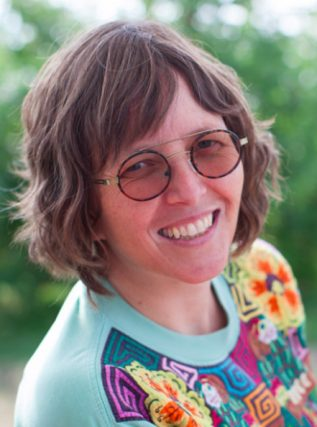
Florence Reed is a prize-winning thought leader, innovative practitioner, and deeply engaging speaker who believes that when people work together, things can change for the better. This belief led her to serve as a Peace Corps Volunteer in Honduras in the early nineties. In 1997, Reed founded Sustainable Harvest International, a nonprofit organization dedicated to working with rural Central American communities to implement sustainable farming practices and preserve tropical forests. As the organization’s chief visionary and networker, Florence spends her time in rich conversations with internal and external stakeholders, bringing together farmers, donors, volunteers and others to catalyze changes for a better future.
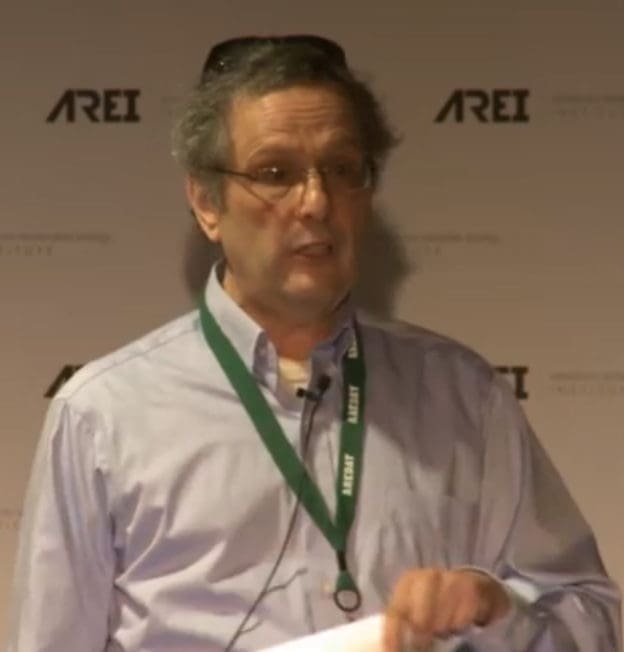
Adam Sacks is the Executive Director of Biodiversity for a Livable Climate. He has had careers in education, holistic medicine, computer technology, politics, and advocacy. A climate activist since 1999, since 2007 he has been studying and writing about the power of biology to reverse global warming and restore the earth. In 2009-10 he published articles in the online magazine, Grist, which described and anticipated some of today’s climate developments. His primary goal is regeneration of biodiversity and a livable planet for his daughter, grandson, and their 7+ billion cousins. Adam’s other interests include art, anthropology and the practice of science in the twenty-first century.

Dr. Pablo Suarez’s research focuses on the use of information for reducing vulnerability. He is associate director of programs for the Red Cross/Red Crescent Climate Centre, and an advisor for Oxfam America’s Private Sector Team. He has consulted for the United Nations Environment Programe, the World Bank, the Dutch Ministry of Foreign Affairs, the International Institute for Sustainable Development (IISD), the American Association for the Advancement of Science (AAAS), the Potsdam Institute for Climate Impact Research (PIK) in Germany and other international organizations, working in more than 30 countries.
Dr. Suarez is a visiting scholar at Boston University and a guest scholar at the International Institute for Applied Systems Analysis (IIASA). He has worked and published on a diverse range of issues including transportation modeling, food security implications of changing rainfall patterns, microinsurance instruments for subsistence farmers, and the impact of the HIV/AIDS pandemic on disaster management organizations. His current work addresses adaptation to climate change, institutional innovation and integration, and the use of video and other communication tools for awareness, advocacy and capacity building.
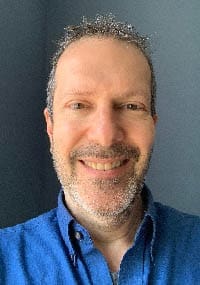
Steve Weinberg champions win-win solutions with a focus on initiatives that cultivate vibrant and sustainable communities and businesses. In the late 1990s Steve learned about Paul Hawken’s work with a sustainability framework, The Natural Step, which informed Steve about systems thinking and a change process adopted by small and large business and communities alike. Steve’s successive visits to tour Susatinable Sweden and its Eco-Muncipalities in 2001 and 2002, completely changed his perception about what a dedicated citizenry could accomplish aided by effective sustainability knowhow. Steve organized speaking engagements and roundtables which introduced Philadelphia civic leaders to Eco-Municipalities and best practices and guided Philadelphia’s Sustainable Business Network (SBN) to a broader focus on creating a green economy. Steve represented SBN on a Green Economy coalition which SBN created and which was regarded as one of the most effective in the US.With actions that any small business person could take, Steve made his small industrial-sector business a founding B Corp, audited for social, enviornmental and governance practices, and became one of the first For Benefit companies. He helped grow and then co-chaired Philadelphia’s SBN, doubling its membership as it became one of the largest and most vibrant networks of its kind. At the same time, Steve served for 7 years as Treasurer and board member of a NJ solar developer that pioneered the use of Power Purchase Agreements, making solar much more affordable throughout the industry. The solar company was instrumental in its collaboration with the State of NJ in its development of one of the most aggressive energy master plans at the time, a codified commitment to 80% renewables by 2050.
Steve is excited to be participating at this Blessed Unrest Conference, finding much inspiration in all that has been shared.
